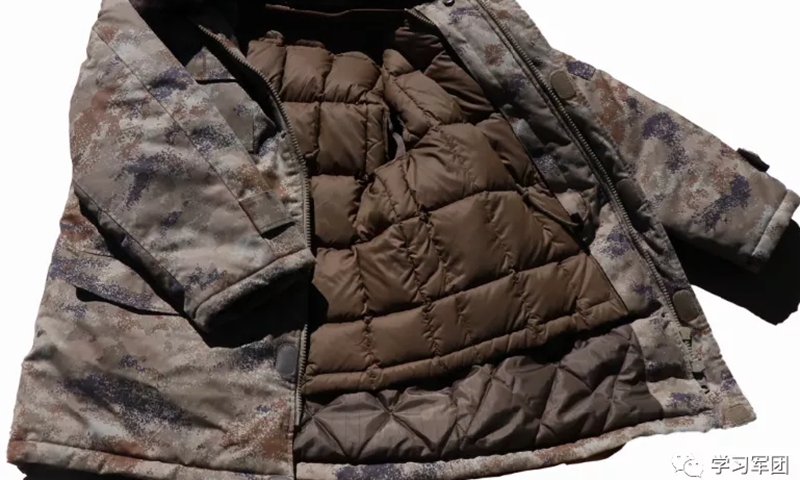India, China border conflict sees no end, and surviving the snowy winter in the western Himalayas itself is a bigger challenge than fighting the enemy. Perhaps, nobody would realize this better than the Indian and Chinese troops, who are locked in a border standoff in Ladakh for the past seven months.
In winter, the cold desert becomes completely inhospitable with temperatures falling to -40 degrees Celsius. The area receives up to 40 feet of snow. The two armies are ramping up the preparedness for the cold winter months by stocking up on food, supplies, and clothing.
The Chinese media regularly publishes videos and photos of its troops being prepared to live in those harsh conditions. EurAsian Times does a reality check:
Winter Gear
Reportedly, the Chinese frontier patrol troops have been supplied with winter gear including cold-proof hoods, warm training clothes, lightweight cold-proof warm training coats, moisture-absorbing, and quick-drying underwear, warm fleece underwear, down warm cotton underwear, warm cotton vests, and cold-proof outer gloves, among others.

According to Chinese state media, new technology has been applied in making these clothes. “The warm training suit uses the latest domestically developed high-strength polyamide fiber to achieve both lightweight and high strength,” reported Global Times citing the Chinese PLA Daily.
Moreover, the training underwear uses porous copolyester imitation linen material, which can absorb moisture quickly. The tabloid further reported that the lightweight cold-proof and warm training coat improves the thermal insulation effect while reducing the total weight.
On the other hand, the Indian forces have sourced their winter gear from the United States. It has recently received the first consignment of extreme cold-weather clothing.
According to an India Today report, the Indian Army maintains a stock of 60,000 of these extreme cold weather clothing sets for troops deployed in the entire Ladakh region, although there was an additional requirement of around 30,000 more as additional troops are deployed in the region.
Smart Camps
To beat the chilly winds in the snow-covered mountains of Ladakh, the Indian Army has built state-of-the-art camps to house the troops deployed at forward locations.
“Apart from the smart camps with integrated facilities which have been built over the years, an additional state-of-the-art habitat with integrated arrangements for electricity, water, heating facilities, health, and hygiene have been recently created to accommodate the troops,” the Indian Army said in a statement.
#WATCH Eastern Ladakh: In order to ensure operational efficiency of troops deployed in winters, Indian Army has completed establishment of habitat facilities for all troops deployed in the sector. pic.twitter.com/H6Sm5VG541
— ANI (@ANI) November 18, 2020
Chinese PLA Daily has also reported about new barracks that provide advanced functions and complete supporting facilities for the troops stationed at LAC. The Chinese military report revealed that the field insulated cabins ensure that the troops can camp and perform tasks in high-cold and high-altitude areas. The temperature in these camps can be kept above 15 degrees Celcius even when it is freezing outside at night.
Analysts believe that Indian troops have been manning the Siachen glacier which records -60 degrees temperature and is the highest battleground on earth, this would give them an edge over the Chinese troops who don’t have such experience.
Food and Supplies
The Chinese state media has published videos of troops eating piping hot food claiming that it is from the troops deployed at the LAC.
Images show fresh vegetables being grown by troops in the region. The PLA Daily report claims there has been abundant food supply through years of development of non-staple food emergency support bases and logistics distribution systems. It ensures that no less than “12 varieties” of fresh non-staple food is stockpiled in winter.
Furthermore, “nutrient-rich rations and self-heating food” is developed to have improved food quality, the daily said.
To ensure that frontier defense troops can eat hot food, relevant PLA departments have supplemented the plateau troops with relevant storage equipment, improved food preservation and processing methods, the PLA mouthpiece claimed.
Indian forces started preparing for the winter months in July by supplying thousands of tonnes of food, fuel, and other equipment to the region using its transport aircraft and helicopters of the Indian Air Force (IAF) including C-130J Super Hercules and C-17 Globemaster. Indian military sources have said that Chief of Army Staff Gen MM Naravane oversaw the preparations himself and was personally involved to ensure its completion.